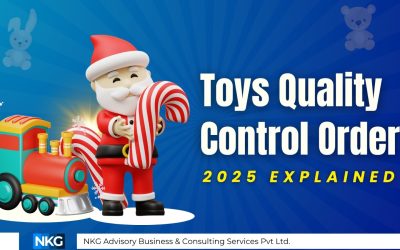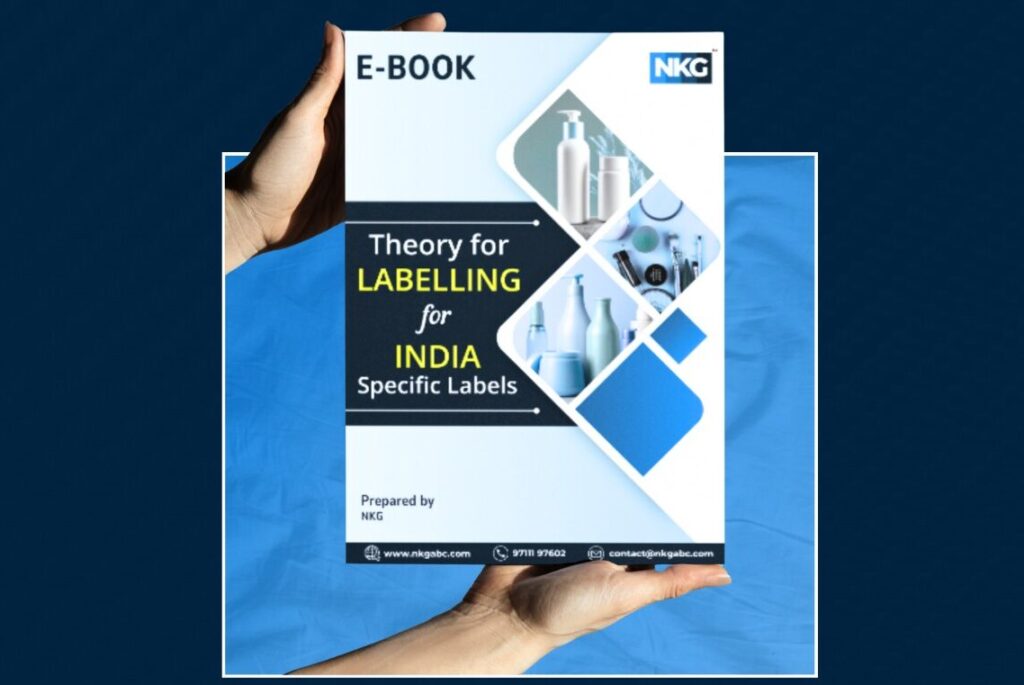1. Overview of Legal Metrology
Legal metrology is part of metrology that overlooks the units of weights and methods of measuring along with measuring instruments, as well as the necessary technical and legal requirements to guarantee public safety and measurement accuracy. Legal metrology refers to the legal framework that governs the use of measuring devices in trade and commerce, such as the scales at grocery stores and petrol pumps. This has a solid connection to the idea of weights and measures, which refers to the metrology infrastructure that defines the application and functionality of technical artifacts and devices used to test and validate the regulated measuring instruments. Weights and Measures and Legal Metrology work together to ensure equity in trade and commerce and uniformity in laws and regulations. In other words, these underpinning systems give our ongoing business operations confidence while safeguarding the public from misleading measurement-related practices.
In September 2020, the Deputy Director of Legal Metrology wrote a letter to the Direct Selling Entities to comply with the Legal Metrology Act, 2009, and Legal Metrology (Packaged Commodities), 2011. In this letter, the Deputy Director requested that certain mandatory declarations, such as the name and address of the packer, importer, manufacturer, country of origin, net quantity, commodity name, month and year of manufacturing, importation, or pre-packing, be required to be made on all pre-packaged commodities in the interest of consumers. Month and year, the use-by or best-before date of a product that could become unfit for human consumption, the retail sale price, and consumer care details. The Deputy Director has requested that the Direct Selling Entities comply with the rules, and they must provide a copy of the Registration Certificate issued in accordance with Rule 27 of the 2011 Legal Metrology (Packaged Commodities) Rules.
2. Who should apply the Legal metrology Act
- Anyone who uses weight or measurement in a business transaction, a production process, or a law.
- Any manufacturer, dealer, wholesaler, repairer, importer, and/or packer of a product with a weight, measure, or number-related component.
3. Objectives of the Legal Metrology Act
- In trade and commerce regulate the use of weights and measures.
- To create and implement weight and measurement standards.
- Items are manufactured, sold, and used according to weights, measurements, or numbers.
- Rationalizing the metric system in India (meter, kilogram, etc.).
4. Major Stakeholders under Legal Metrology Act
- Dealer: A person who engages in the business of offering to sell, supply, purchase, or distribute any weight or measure in exchange for a valuable consideration.
- Importer: An importer is any person, business, or other legal entity that brings goods into a customs territory from a foreign country or arranges for them to be brought there.
- Manufacturer: A person who produces a weight or measure, any packaged good, in one or more parts, then acquires additional pieces of the same weight or measure, puts them together, and claims the combined weight or measure is one he produced.
- Repairer: To ensure that a weight or measure complies with the standards established by or under the Legal Metrology Act, a repairer is a person who adjusts, lubricates, cleans, paints, or performs any other services on the weight or measure.
- Packer: Any person or business that pre-packs goods into containers that are suitable for sale, whether at a wholesale or retail level, including a packer.
5. Compliance under legal metrology
a) Registration by Packer, Manufacturer, or Importer of Commodities: According to the Legal Metrology (Packaged Commodities) Rules, 2011, every Packer, Manufacturer, or Importer of Commodities who pre-packs or imports any commodity for distribution, sale, or delivery is required to register.
b) Verification and Stamping
- Each weighing and measuring instrument must be used and sold with being stamped & verified.
- Every person using a weight, measure, or measuring instrument in any transaction must have the weight & measure instruments stamped & verified.
- Continuous use of weights and measures for any transaction requires re-verification.
- The weight and measure that cannot be removed from its place are verified and stamped there.
c) Maintain Records & Registers: Every weight/measure dealer, repairer, or manufacturer is required to keep accurate records and registers.
d) Returns or Report: A monthly or quarterly returns or reports of weight and measure needed to be submitted by each licensed dealer to the legal metrology controller. There may be differences in reporting requirements and deadlines between states.
e) Use of Weight & Measure: In almost every industry, including business and services, standards of weights and measures are used. These standards can include length, temperature, volume, unit, mass, capacity, and area. The following activities require the use of weight and measure in accordance with a standard unit of weight, measure, and numeration:
- Displaying or releasing any invoices, price lists, or cash.
- Stating the net quantity of pre-packaged goods.
- Announcing or quoting any product prices; or
- Publishing any advertisements.
f) Approval of Model of Weight & Measure: A person must obtain the Model’s approval before importing or creating any weights or measurements. The following information must be included in the application for the approval of the Model of weight/measure:
- The applicant’s full name and address.
- The manufacturer’s test procedure.
- If the Model is imported from another country, the manufacturer’s name, address, and dealer in India.
- A succinct description of the weight or measure.
- The name and brand of the weight or measure.
- Potential applications for which the weight or measure is intended to be produced.
g) Mandatory Declarations: The Act that requires declarations to pack, sell, deliver, offer, manufacture, expose, or possess for sale any pre-packaged commodity in standard quantities or numbers is known as Legal Metrology’s most important compliance. A declaration is required on every package or pre-packaged good intended for commercialization in India.
6. Compulsory declarations
- Country of Origin,
- Retail Sale Price,
- Details of the manufacturer, importer, or packer such as name and address.
- Whenever applicable, the commodity’s dimension or size.
- Month and year of production, import, or packaging.
- A commodity’s best-before or expiration dates, including the month and year.
- The commodity’s common name.
- The content’s overall volume.
- Obtaining a license as a weight and measure repairer, dealer, or manufacturer:
- An application must include names, premises address, commodity name, and the required fee—which varies from state to state.
- Every weight and measure dealer, manufacturer, or repairer must obtain a license from the Controller of Legal Metrology.
7. LMPC (Legal Metrology (Packaged Commodities)) Rules,2011
The primary law in India that governs the legality of labeling information on the packaging of any Pre-Packed Commodities is the Legal Metrology Packaging Rules (LMPCR), which were published in 2011. All manufacturers, brand owners, importers, e-commerce companies, and packers are subject to these laws. Unless the package in which the commodity is pre-packed bears such declarations as are required to be made under these rules, or a Label is securely affixed thereto, no person may prepackage, cause to be prepacked, or permit any commodity to be prepacked for sale, distribution, or delivery.
8. Advantages of the Legal Metrology Act compliance
- Low transaction cost – Poor measuring exercises may occasionally cost more and take longer than they are worth. These kinds of actions impact both the buyers and the vendors. Filing a lawsuit against a vendor who violates the measuring rules is also challenging. On the other hand, the Legal Metrology Act unquestionably reduces both time and cost when measures are taken in a manner that ensures they are accurate and precise.
- Promoting and advancing business activity- The legal metrology act must control any unethical or illegal business practices. For measuring instruments to perform as intended and continue to adhere to international standards, this Act aims to ensure that they are fully functional and in excellent condition.
- Utilizing Money Received from the Government – Excise taxes and fees levied on goods that are produced, sold, exported, and imported provide funding for the government. Taxes are additionally levied on measurement. By guaranteeing that no injustice would be committed, the Legal Metrology Act ensures that the government and businesses are treated fairly in all circumstances involving the payment of taxes.
- When it comes to commodities like rice, lumber, coal, iron ore, coffee, palm oil, natural gas, gold, and jewels, the number of mass-produced goods may significantly affect export and national income, especially in the case of commodities.
- Getting Rid of Trade Barriers Brought About by Technical Issues – The Legal Metrology Act eases the burden of technical challenges while also bringing assurance and clarity to measurement. A nation’s self-confidence increases with fewer obstacles, motivating citizens to take advantage of opportunities for engaging in international trade.
- In turn, this causes the rate of the national economy to rise. A trader may profit from the help offered by the Legal Metrology Act by avoiding pointless obstacles when applying technical laws, adopting standards, and carrying out conformity assessment procedures.
Conclusion: The legal metrology act and rules were made for the safety of consumers and to promote fair trade practices. It establishes the legal framework for the use of measuring devices and regulates the application and functionality of weights, measures, and numerical systems. By enforcing standards and requirements, the Act aims to protect consumers from misleading practices and promote uniformity in laws and regulations. By adhering to the Legal Metrology Act, businesses can ensure accurate measurements, uphold transaction integrity, and build customer trust. This fosters a favorable environment for fair trade and commerce, contributing to the overall growth and development of the economy.







